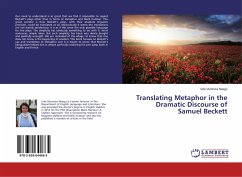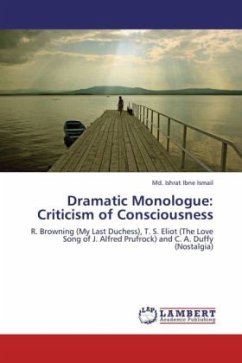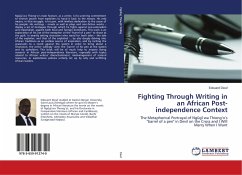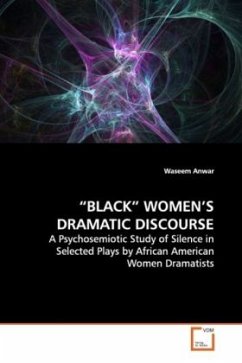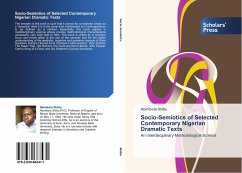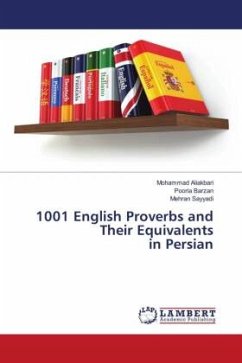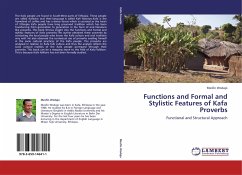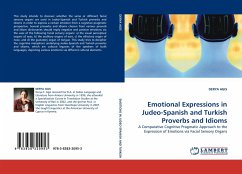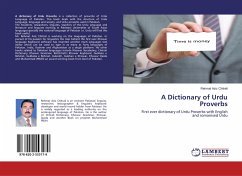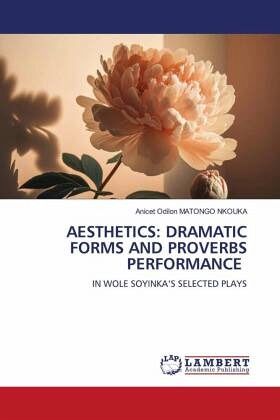
AESTHETICS: DRAMATIC FORMS AND PROVERBS PERFORMANCE
IN WOLE SOYINKA'S SELECTED PLAYS
Versandkostenfrei!
Versandfertig in 6-10 Tagen
56,99 €
inkl. MwSt.

PAYBACK Punkte
28 °P sammeln!
Wole Soyinka's selected plays reveal his inherent theatrical qualities based on rituals, beliefs, deities, festivals and ceremonies of West Africa. Yoruba cosmology reflects a conviction in the continuity among the three states of being: the dead, the living and the supernaturals. Through theatrical plots and theatrical structures Wole Soyinka depicts the life of his people. Anonymat is used at the level of characterization to fulfill the function of representing the whole community of people who act the way they do. The principle of unity is fulfilled when a man and a woman are together for t...
Wole Soyinka's selected plays reveal his inherent theatrical qualities based on rituals, beliefs, deities, festivals and ceremonies of West Africa. Yoruba cosmology reflects a conviction in the continuity among the three states of being: the dead, the living and the supernaturals. Through theatrical plots and theatrical structures Wole Soyinka depicts the life of his people. Anonymat is used at the level of characterization to fulfill the function of representing the whole community of people who act the way they do. The principle of unity is fulfilled when a man and a woman are together for the same cause; patriarchy and domination are against this principle. Proverbs in the plays deal with the past, present and future, on-going conflict of values, rejection of modern technique, power and wealth, Eurocentric worldview, Afrocentric worldview, mediation of conflict, and religious hypocrisy. Another country cannot be held responsible for the ills in one's own country. Soyinka interrogates the idealized image of Africa and takes us to witness the error of political tyranny by an ancient African emperor, and the bestiality of human nature.



